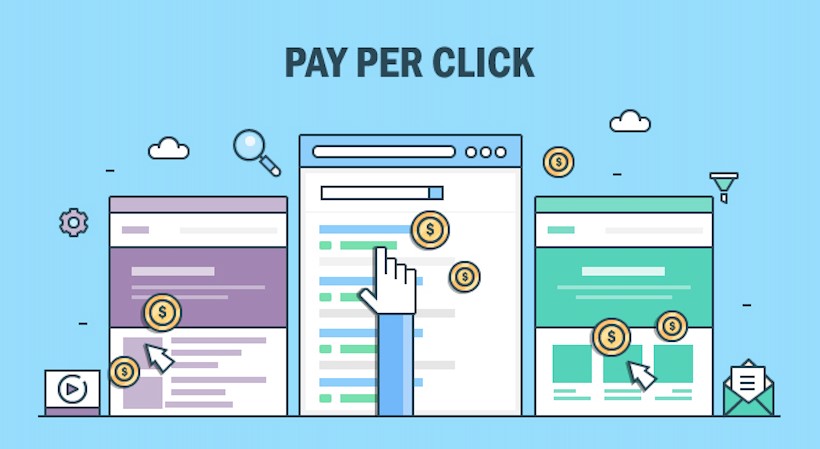Pay Per Click Advertising (PPC) has become a popular digital marketing strategy for businesses looking to generate traffic and leads. This form of advertising involves advertisers paying a fee each time a user clicks on their ad. While Pay Per Click Advertising delivers fast results, businesses must weigh the pros and cons before committing to this strategy. Understanding PPC’s advantages and limitations helps businesses make informed decisions. Evaluating these factors allows them to optimize their marketing efforts for maximum return on investment (ROI).
Pros of Pay Per Click Advertising
One of the most significant advantages of Pay Per Click Advertising is the ability to achieve immediate visibility. Unlike search engine optimization (SEO), which takes time to generate organic traffic, PPC ads appear almost instantly. This is particularly beneficial for businesses that want to promote time-sensitive offers or reach new audiences quickly. With the right bid and targeting strategy, businesses can position themselves at the top of search engine results or display ads on relevant websites.
Another benefit of PPC is its precise targeting capabilities. Pay Per Click Advertising platforms, such as Google Ads and Bing Ads, allow businesses to target specific demographics, locations, and even devices. Businesses can also leverage keyword targeting to reach users actively searching for products or services related to their offerings. This level of precision ensures that businesses only spend money on reaching the most relevant audiences, improving the likelihood of conversions.
PPC advertising offers measurable results, which is another key advantage. With analytics tools integrated into platforms like Google Ads, businesses can track the performance of their campaigns in real-time. Metrics such as click-through rates (CTR), cost-per-click (CPC), and conversion rates provide valuable insights into which ads are performing well and which need optimization. This transparency allows businesses to make data-driven decisions and adjust their campaigns to improve performance continually.
Additionally, Pay Per Click Advertising provides budget flexibility. Unlike traditional advertising methods, PPC allows businesses to set their daily or monthly budget and control costs based on performance. This flexibility makes it easier for businesses of all sizes to run ads, regardless of budget constraints. Companies can start small and scale their campaigns as they see results, ensuring that they only spend what they can afford.
Cons of Pay Per Click Advertising
Despite its benefits, there are several drawbacks to Pay Per Click Advertising that businesses must consider. One of the main disadvantages is the cost associated with PPC. While businesses can set their budgets, competitive industries often have high CPC rates, which can lead to expensive campaigns. Without proper management, businesses may find themselves spending more than expected with minimal returns.
Another challenge with PPC is that it requires constant monitoring and optimization. Unlike SEO, where once-optimized pages can maintain rankings with minimal effort, PPC campaigns need regular adjustments to stay effective. Businesses must continuously monitor keyword bids, ad performance, and overall campaign health to ensure that their ads remain cost-effective. This ongoing effort requires both time and expertise, which can be a challenge for small businesses or those with limited marketing resources.
Click fraud is another concern associated with Pay Per Click Advertising. Click fraud occurs when competitors or automated bots click on ads with malicious intent, causing businesses to pay for non-legitimate clicks. While PPC platforms have measures in place to detect and mitigate click fraud, it remains a risk that can drain advertising budgets and affect overall campaign performance.
Additional PPC Drawbacks
Additionally, the temporary nature of PPC results can be a drawback. Once a business stops paying for ads, its visibility disappears. Unlike SEO, where organic rankings can persist even after active efforts have ceased, PPC only delivers results while the campaign is active. This means businesses must continually invest in PPC to maintain traffic, which can become costly over time.
Finally, while PPC offers immediate visibility, it does not build long-term brand value in the same way that organic efforts do. Users may click on ads, but those interactions are often short-lived unless followed by an effective retention strategy. Organic efforts, like content marketing and SEO, tend to provide more lasting value and help build trust over time.
Weighing the Pros and Cons
For businesses using Pay Per Click Advertising, it’s crucial to assess how the benefits and drawbacks align with specific goals. PPC is effective for quickly driving traffic, particularly during product launches or time-sensitive promotions. However, businesses must carefully consider the costs, time commitment, and associated risks. A well-executed PPC campaign can yield high returns, but poorly managed campaigns risk wasted spending and minimal results.
To succeed with PPC, businesses need a clear strategy that aligns with broader marketing objectives. Working with experienced marketers or investing in training optimizes campaigns and maximizes budgets. Additionally, combining PPC with long-term strategies like SEO and content marketing creates a balanced digital approach, ensuring sustained growth even after campaigns conclude.
Pay Per Click Advertising offers both opportunities and challenges for businesses looking to grow their online presence. Its ability to deliver immediate results, precise targeting, and measurable performance makes it a valuable tool in the marketing mix. However, the costs, ongoing management, and temporary nature of PPC must be carefully considered. By weighing the pros and cons, businesses can decide whether PPC aligns with their goals and how to integrate it into their broader marketing strategy.


